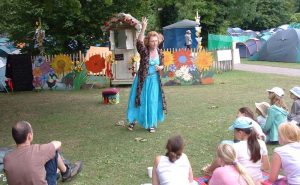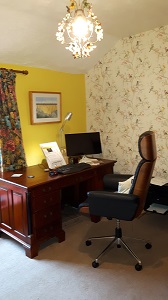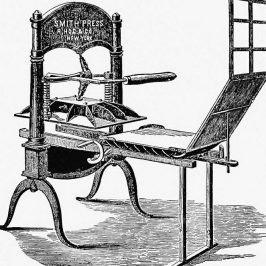Music, Myth and Song….

There’s always a lot of love, death and dire consequences buzzing round Penzance Folk Club (held once a fortnight at the Admiral Benbow on Chapel Street). I should know, since I’m one of the guilty parties. I have a bit of a reputation for songs of death and sex…
I became a regular here not long after moving to Cornwall. I have lapsed over the past year, but now I’m back!
I was introduced to folk music by my boyfriend (later my first husband) when I was 17. That first visit to the Benbow was like being transported back to those times. The club is friendly and incredibly welcoming. I was encouraged to sing and having got over my nerves, and with encouragement and input from my now-husband David, I found my voice.
All of which is great, I love to perform, but what is it about folk music that, for me, is so utterly engaging?
It’s All About The Stories…
When I lived in Cambridge I was convinced I couldn’t sing and so got involved with the oral storytelling scene. I remember performing with the wonderful John Row at Cambridge Folk Festival (not as exciting as it sounds, we were outside the main festival arena, next to the toilets and constantly interrupted by the sludge-gulper, not to mention the clog dancers on the adjacent stage) It taught me a lot about how to hold an audience against all odds.

However I’m telling you this because I remember John Row saying, ‘The reason we are storytellers, is that we can’t sing.’ I agreed at the time, but now I’ve found that I can sing and I realise that singing and telling are neither here nor there, they are just two different ways of telling a story.

Since we’re on the subject, I would say that all too often people assume storytelling is for children. Of course children love stories and you will see from the photo of (a much younger) me at the Cambridge Folk Festival that the majority of the audience was made up of children. That said, I always loved it when, after a performance, an adult audience member came up to me to say how wonderful it was to be reminded of the world of story. So, storytelling for adults – for a brief while I performed as one-of-three Scarlet Women…whoever would have thought The Gingerbread Man could be quite so raunchy?!
Moving on.
Folk music and folk tale…
The perfect cross-over between these two occurred for me when, as part of Cambridge Storytellers, I took part in a performance called The Wild World of Faerie. My story was adapted from a folk song called Cruel Sister. Basically, the elder sister is promised in marriage but the groom falls in love with the younger sister. The elder pushes her sister over the cliff into the sea and she drowns. However, a minstrel finds her body and uses her bones to make a harp which he strings with strands of her hair. He takes the harp to the elder sister’s wedding, puts it on the hearth and the harp begins to play all by itself, telling the story of the younger sister’s murder, and naming her murderer.
Dark stuff, but a hell of a story which I expanded and developed and interspersed with snatches of the song.
These stories are dark, but then they are recording dark times. I sang Cruel Mother at the Benbow recently. There are many versions of this, some closer than others to the one I sing. It’s the story of a woman who had two children, both out of wedlock and by a man of lower social status (sometimes fathered by a farm boy, sometimes by her father’s clerk). She killed them both: presumably because she would have been punished by her family, ostracised by society. It is a deeply moving song as, at the end when she is confronted by her children’s ghosts, she understands the enormity of what she has done.
So, songs of love betrayed; songs of battles and seafaring adventures…the occasional song where the woman prevails. In The Devonshire Farmer’s Daughter she goes to market, makes a lot of money and on the way home is waylaid by a trooper. However she’s a clever and confident girl and she makes her escape on his horse with the money he has stolen from her and, presumably, from others. When she arrives home her father is so relieved to see her safe that he matches the money in the trooper’s saddlebag, all in all enough to set her up for life.
Of course, there are more modern pieces. I particularly like Jake Thackray’s Isobel. Isobel travels the country making love on national monuments but what Thackray does is personify the Royal Albert Hall which/who has not yet had the pleasure of her company. I first heard this when I was 18 and I was bewitched by the independence and confidence of the wonderful Isobel.
My Writing – Looking for Jonah
The ultimate crossover between these genres occurred when I wrote my novel Looking for Jonah (currently seeking an agent/almost finalist of Curtis Brown Write a Bestseller competition!) which hinges around a folk-rock band Black Rook Rising.
So there you have it…
I shall continue to write my stories; I shall continue to sing at the folk club; who knows, I may even dip my toe back in the oral story tradition.
While I ponder that, let me leave you with Jake






1termination
2microscopic
writing the doctoral dissertation
uk dissertation writing service https://professionaldissertationwriting.org/
dissertation example
write my dissertation for me https://professionaldissertationwriting.com/
help writing a dissertation
dissertation editing services https://helpwithdissertationwritinglondon.com/
what does dissertation mean
dissertation writing support https://dissertationwritingcenter.com/
tips for writing a dissertation
dissertation research https://dissertationhelpexpert.com/
dissertation help ireland editing
creative writing course in mumbai https://accountingdissertationhelp.com/
writing phd dissertation
dissertation proposal https://examplesofdissertation.com/
uk dissertation help
online edd no dissertation https://writing-a-dissertation.net/
best rated essay writing service
dissertation meaning https://bestdissertationwritingservice.net/
professional dissertation help
proposal and dissertation help 2000 words https://businessdissertationhelp.com/
dissertation writing grants
how long is a doctoral dissertation https://customdissertationwritinghelp.com/
edd dissertation topics
dissertation write https://writingadissertationproposal.com/
thesis defense
buy dissertation online https://dissertationhelpspecialist.com/
doctoral dissertation help thesis
dissertation help galway https://dissertationhelperhub.com/
best dissertation writing service uk
do my dissertation https://customthesiswritingservices.com/
my choice casino online slots
online casino no deposits https://download-casino-slots.com/
spain online casino
online casino promo codes https://firstonlinecasino.org/
united states online casino
best online casino to win money https://onlinecasinofortunes.com/
online casino florida
best no deposit bonus online casino https://newlasvegascasinos.com/
slots casino online
online casino las vegas https://trust-online-casino.com/
caesars pa online casino
vegas casino online real money https://onlinecasinosdirectory.org/
viva slots vegas™ free slot casino games online
betmgm online casino nj https://9lineslotscasino.com/
rivers online casino
no min deposit online casino https://internet-casinos-online.net/
online casino usa legal
casino online betting https://cybertimeonlinecasino.com/
borgata online casino customer service
online casino no deposit codes https://1freeslotscasino.com/
online casino australia
betrivers online casino https://vrgamescasino.com/
online casino free spins
$1 deposit online casino usa https://casino-online-roulette.com/
online casino betting
ruby fortune online casino https://casino-online-jackpot.com/
online casino no deposit bonus codes 2020
777 online casino https://onlineplayerscasino.com/
sx vegas casino online
jack online casino https://ownonlinecasino.com/
bingo casino online marc lugtenber
bally online casino https://all-online-casino-games.com/
best real money online casino
online casino games with real money https://casino8online.com/
free vpn windows
hotspot shield vpn proxy free https://freevpnconnection.com/
free uk vpn
how does vpn work https://shiva-vpn.com/
best vpn for public wifi
use vpn to buy crypto https://freehostingvpn.com/
hma pro vpn
buy vpn with crypto https://ippowervpn.net/
free vpn download
google vpn https://imfreevpn.net/
best vpn client
unlimited free vpn https://superfreevpn.net/
best vpn routers
what is avast secure line vpn https://free-vpn-proxy.com/
ivacy vpn
vpn book https://rsvpnorthvalley.com/
about dating gay spanish men rtics
superchub gay dating https://gay-singles-dating.com/
gay executive dating
gay male dating app https://gayedating.com/
gay dating free
best gay dating site https://datinggayservices.com/
free singles dating search
vip dating now https://freephotodating.com/
date me site
free online https://onlinedatingbabes.com/
dating site for
best online dating sites https://adult-singles-online-dating.com/
adult dating married
best dating site online https://adult-classifieds-online-dating.com/
interracial dating
lesbian cowgirls https://online-internet-dating.net/
sex dating
top online meeting sites https://speedatingwebsites.com/
free site for dating
plentyoffish dating sites https://datingpersonalsonline.com/
date personal
europe online dating https://wowdatingsites.com/
free web girl
online dating best sites free https://lavaonlinedating.com/
dating sites into trampling
which online dating site is best https://freeadultdatingpasses.com/
dating sites free no registration
online singles dating sites https://virtual-online-dating-service.com/
best date sites
online dating best sites https://zonlinedating.com/
dating websites free
dating sites without registering https://onlinedatingservicesecrets.com/
online casino real money usa no deposit
online casino news https://onlinecasinos4me.com/
my choice casino online
new jersey online casino https://online2casino.com/
parx casino online
casino games online free https://casinosonlinex.com/
gay sex chat online
totally free gay phone chat https://newgaychat.com/
chicago gay chat rooms free
free gay phone chat line https://gaychatcams.net/
gay phone chat lines
free gay chat lines in nc https://gaychatspots.com/
gay chat roulette adult
ffree gay chat https://gay-live-chat.net/
321 gay teen chat
gay sex chat room https://chatcongays.com/
chat de gay usa
live chat video gay https://gayphillychat.com/
free 60 minute trial phone chat gay local
live free gay web cam chat rooms https://gaychatnorules.com/
gay teen cam chat
zoom cam rooms gay chat https://gaymusclechatrooms.com/
gay sex chat simulator
gay live chat rochester https://free-gay-sex-chat.com/
gay sex video chat
gay chat cam https://gayinteracialchat.com/
oc gay chat rooms
dubuque gay guys chat https://gaymanchatrooms.com/
where can you buy resume paper
buy writing paper https://term-paper-help.org/
write my paper canada
best paper writing service https://sociologypapershelp.com/
custom handwriting paper
buy papers for college https://uktermpaperwriters.com/
paper writer services
buying papers online https://paperwritinghq.com/
help with papers
best custom papers https://writepapersformoney.com/
buy college paper online
write my paper one day https://write-my-paper-for-me.org/
write my thesis paper
cheap paper writing services https://doyourpapersonline.com/
who will write my paper for me
custom college papers https://top100custompapernapkins.com/
need help writing a paper
help with writing papers https://researchpaperswriting.org/
can you write my paper
paying someone to write a paper https://cheapcustompaper.org/
scientific paper writing services
buy psychology papers https://writingpaperservice.net/
help me write my paper
do my paper for money https://mypaperwritinghelp.com/
buy papers for college
buy a college paper online https://writemypaperquick.com/
help with papers
where can i find someone to write my college paper https://essaybuypaper.com/
can i pay someone to write my paper
paper writing service reviews https://premiumpapershelp.com/
paper writing services best
paper writing service cheap https://ypaywallpapers.com/
buy papers for college
ghost writer for college papers https://studentpaperhelp.com/
3customs
3chapter